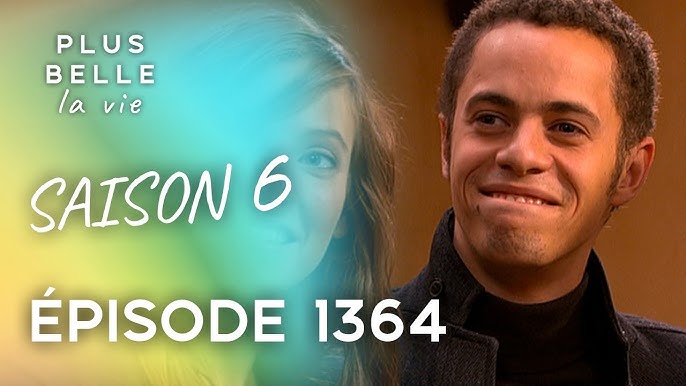In this emotionally charged episode of Plus Belle la Vie, layers of guilt, betrayal, compassion, and desperate hope unravel in the tight-knit Marseille community, while a coveted trip to Morocco ignites tension, jealousy, and unexpected confessions.
The story pivots around Mélanie, who remains firmly convinced of Benoît Cassagne’s innocence. Despite Benoît’s bleak circumstances, Mélanie chooses to visit him in prison, hoping her support can bring him some comfort—though her decision isn’t universally approved. Some doubt her motives; others, like Abdel, question if she’s truly the right person for such a visit given their complicated past.
Meanwhile, the luxurious Moroccan getaway, originally meant to be a joyful surprise, turns into an unintended source of conflict. Johanna becomes overwhelmed by the pressure as multiple friends and family members begin competing for a chance to join her. What was supposed to be a generous gift suddenly becomes a popularity contest, burdening her with guilt and resentment. Feeling objectified, she laments that people no longer see her as Johanna Marci, but merely as the ticket to Morocco. Even close friends like Estelle, Mirta, and Rudy awkwardly throw their hats into the ring, sometimes subtly, sometimes shamelessly.
As the Morocco drama unfolds, deeper and darker truths rise to the surface. One subplot follows a man plagued by a terrible secret: three years earlier, he caused a life-altering accident while driving drunk and fled the scene. Wracked with guilt, he now seeks redemption, confiding in his lawyer, Maître Sanga. Their conversation reveals the harrowing consequences of his actions—his victim survived but is now wheelchair-bound. Though he escaped legal consequences, the emotional toll has become unbearable, and he expresses his desire to confess, even if it means destroying his career and future. Maître Sanga, understanding the moral weight, advises caution while acknowledging the man’s torment.
Elsewhere, social tensions escalate as characters lash out over old wounds and misunderstandings. One young woman faces backlash when accused of moving on “too fast” after being sexually assaulted. She’s further humiliated when her integrity is questioned in public, revealing the deep emotional scars such trauma leaves, even when outward appearances suggest otherwise.
Romantic entanglements spiral out of control. Jealousy, heartbreak, and mixed signals fuel misunderstandings. A love triangle—possibly quadrangle—brews quietly as misinterpreted gestures and assumptions strain friendships. Jokes about chocolate body paint, exes bumping into each other, and casual accusations trigger blowups that expose the characters’ emotional fragility.
Then comes the Morocco decision—settled by a seemingly innocent draw. But Blanche observes something suspicious: five paper slips remained after the “random” selection. It becomes clear that the lottery was rigged. The winners—Mirta and her partner—celebrate, but the moral cost hangs heavy. As one character puts it bluntly, “You stole this trip from your own grandson.” The moment stings, reminding viewers that even small deceptions can damage trust.
Adding to the tension, Benoît—still in prison—endures a heartbreaking visit. Once hopeful, he now pushes away former lovers, asking to see only his lawyer and children. The moment feels like a final emotional severing from his past life. His outburst, “You’re part of all this mess,” signals a man broken not just by injustice but by the betrayal and emotional chaos that followed his arrest.
Parallel stories unfold on the theme of survival—emotional, financial, and moral. One family quietly grapples with poverty, too proud to ask for help yet barely making it through each day. A kind friend offers food, refusing to let them suffer in silence, reminding viewers of the human decency that persists even amid turmoil.
In another subplot, Blanche battles technology—an outdated phone and a stubborn coffee machine. The humorous moment of her clumsy attempt to fix electronics with an oversized screwdriver adds levity, while also touching on generational gaps and the feeling of being outpaced by modern life.
Toward the end, more subtle but poignant exchanges bring a sense of closure—or, at least, the need for it. A character confronts the harsh reality of being seen as less than human because of their disability, angrily voicing the daily injustices they face. Another admits manipulating the Morocco lottery, but justifies it with sentiment: “When life gives you a gift, you don’t refuse it.”
Yet the episode’s final beat lands hard. A quiet moment between characters reveals how far their relationships have fractured. Forgiveness seems impossible. Guilt festers. Trust dissolves. The once bright idea of a Moroccan escape now symbolizes everything that’s gone wrong: greed, secrets, manipulation—and the cost of pretending everything’s fine.
This episode of Plus Belle la Vie masterfully weaves together multiple storylines, each reflecting a different facet of human vulnerability—guilt, survival, betrayal, and the desire for redemption. With powerful dialogue, emotional performances, and real-world resonance, it’s a poignant reminder that behind every façade is a story we don’t fully understand.